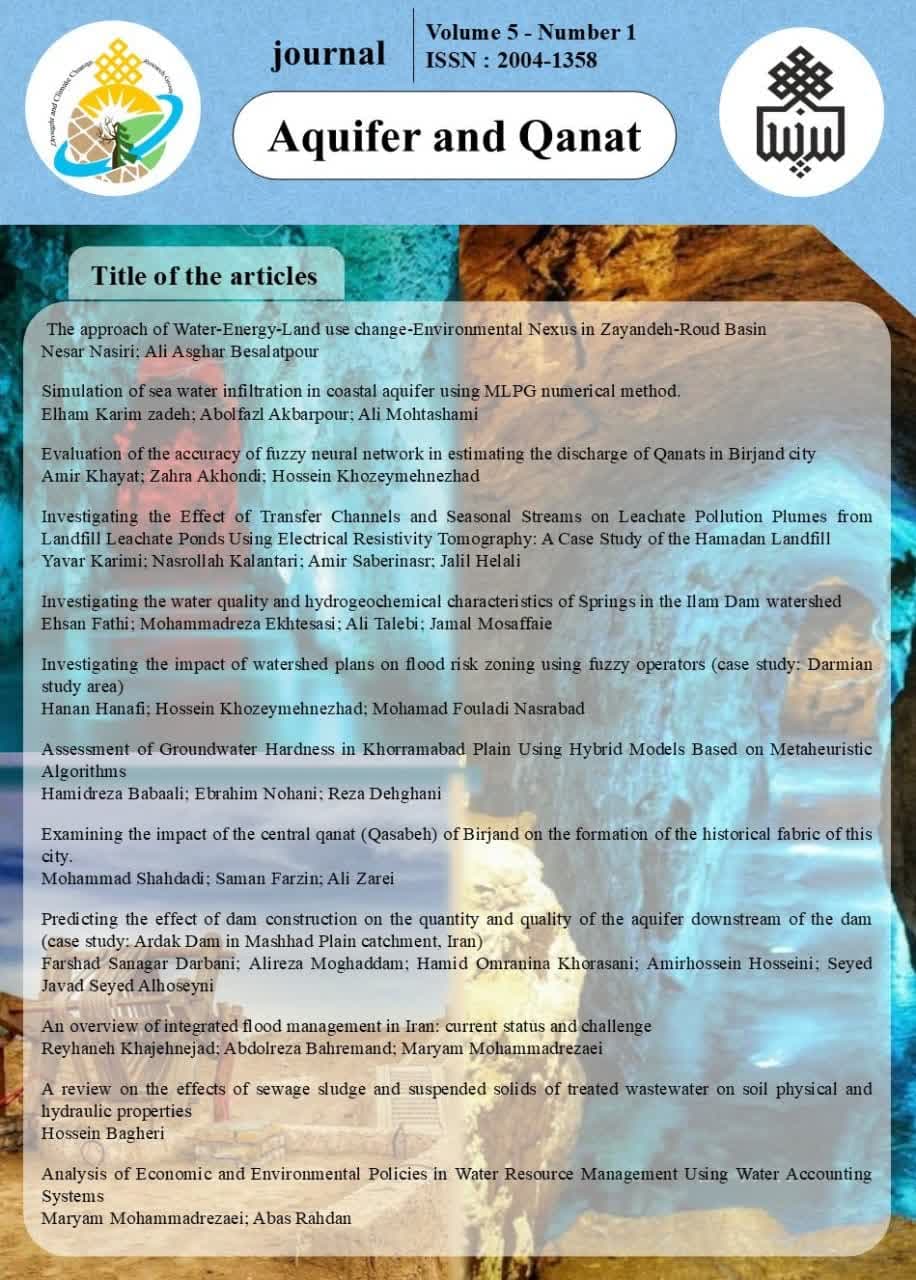Document Type : Review Paper
Authors
1 PhD student in watershed management, Faculty of Rangeland and Watershed Management, University of Agricultural Sciences and Natural Resources, Gorgan, Iran.
2 PhD student in watershed management, Faculty of Natural Resources, University of Tehran, Karaj, Iran.
Abstract
One of the effective approaches in water resource management is water accounting systems, which combine economic and environmental data to enable the optimization of water resources. The System of Environmental-Economic Accounting for Water (SEEAW), as one of the most important international accounting frameworks, is an efficient tool for managing water resources.The use of these systems has a significant impact on reducing water consumption, improving efficiency, and promoting sustainable development. This research introduces the SEEAW framework, its history, and its principles, while evaluating the system's performance in water resource management and its connection to the economy. Additionally, the components of SEEAW, including the definitions and accounting actions of UN member countries and its application across various industries, particularly the mineral industry, are analyzed. The challenges and opportunities of using this system for water consumption optimization and environmental preservation are also examined. The results indicate that the use of SEEAW can reduce water consumption, enhance efficiency, and contribute to the sustainable development of water resources. Furthermore, the need for economic and environmental policies based on scientific data, especially in developing countries, is emphasized.
Keywords
- Freshwater
- sustainable development
- economic-environmental policies
- water accounting system
- water resource management
Main Subjects

